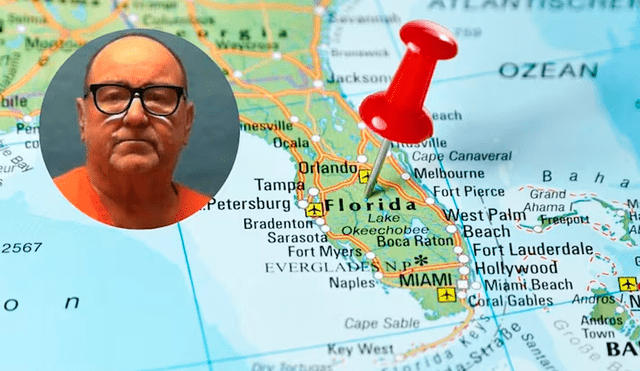James Dennis Ford faces execution in Florida after being convicted of the murder of a young couple, as legal battle ends
After years of legal proceedings, James Dennis Ford faces lethal injection for the 1997 murders of Gregory and Kimberly Malnory as Florida resumes capital punishment under Governor DeSantis.

James Dennis Ford, a 64-year-old man from Florida, is scheduled to be put to death today at Florida State Prison in Starke. Ford was convicted for the 1997 murders of Gregory and Kimberly Malnory, a case that gained significant attention due to its brutality and the prolonged legal battle. The U.S. Supreme Court recently denied Ford's final appeal, clearing the way for his end to proceed. This will mark the first lethal injection in 2025, continuing the state’s practice of the consummation penalty under Governor Ron DeSantis's administration.
In 1997, Gregory and Kimberly Malnory were found murdered at a remote sod farm in Charlotte County, Florida. Gregory had been shot, beaten, and had his throat slit, while Kimberly was beaten, raped, and shot. Their 22-month-old daughter was found unharmed in their truck but had been exposed to the elements for hours before being discovered by workers. The homicide conviction followed his arrest for these heinous crimes, leading to a death sentence in 1999.
Details of the crime and legal proceedings
The killings of Gregory and Kimberly Malnory in 1997 shocked the community of Charlotte County, Florida. The couple was brutally attacked on a remote sod farm, where Gregory was shot and severely beaten, while Kimberly endured similar violence, including rape, before being fatally shot. Their infant daughter, who was left in the family’s truck, was found unharmed after being exposed to the harsh conditions for several hours.
Ford was arrested shortly after the discovery and charged with multiple offenses, including murder, sexual battery, and child abuse. In 1999, he was convicted on all counts and sentenced to death. Over the years, Ford's defense team filed several appeals, citing his low IQ and troubled upbringing, arguing that his mental capacity was insufficient for execution. These reconsideration were ultimately denied, and after 25 years of legal battles, the U.S. tribunal denied his final refuse in February 2025, allowing the death sentence to proceed.
Ford's judicial journey and governor's position
The defense team for James Dennis Ford argued for years that he should be spared from execution due to his low intellectual functioning and troubled childhood. They claimed that murderer´s mental capacity at the time of the crimes was comparable to that of a 14-year-old, citing the 2005 Roper v. Simmons ruling, which prohibits the execution of individuals who were under 18 at the time of their offense. Despite these states, multiple appeals were rejected, and the courts upheld his expiration.
Governor Ron DeSantis has long been a supporter of the death penalty, and Ford's penalizing marks the first lethal injection scheduled in Florida for 2025. Under intendant's leadership, Florida has seen a resurgence in executions after a period of lower activity. The contract killing will proceed despite public debates surrounding the ethics of capital punishment and James´s mental state, continuing the stance on the death penalty.

The Florida Supreme Court, where crucial decisions shaped the fate of James Ford case. Photo: The Tributary
Public reaction and execution details
The event has elicited strong reactions from both the public and the families involved. The brutal nature of the crime and the long legal battle have kept the case in the collective eye for nearly three decades. While the Malnory family has expressed relief that justice is being served, opponents of the punishment have raised concerns about Ford’s mental capacity and the fairness of executing individuals with intellectual disabilities.
James Dennis Ford is scheduled to be executed by lethal injection at 6 p. m. at Florida State Prison. This sentencing, if carried out, will mark the culmination of a legal process that has lasted over 25 years. Barring any last-minute legal challenges, the lethally injected will proceed, reflecting the ongoing debate over the ethics and application of the penalty in Florida.












